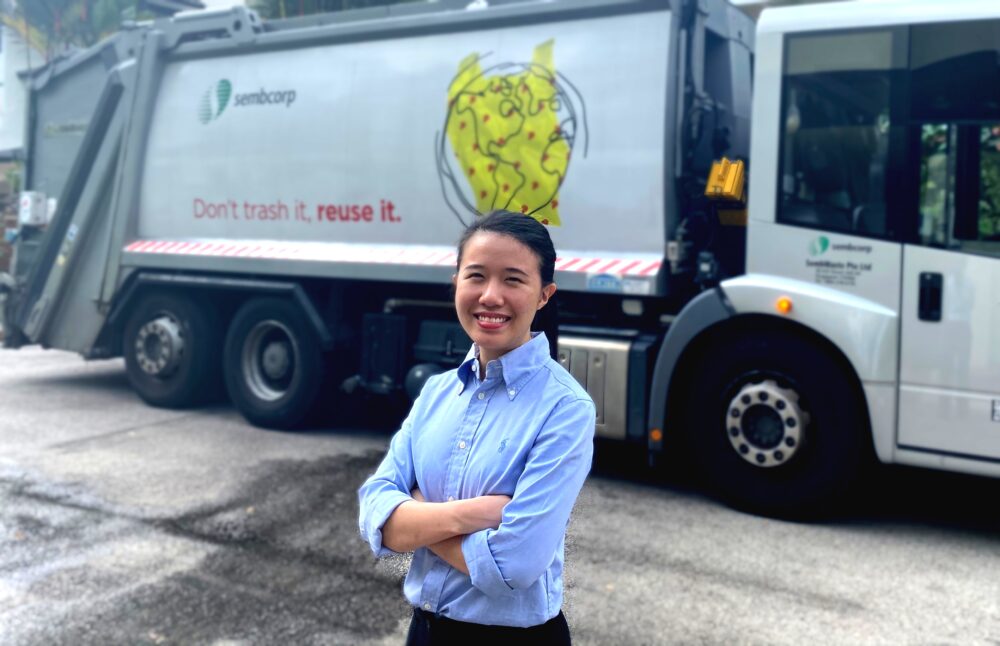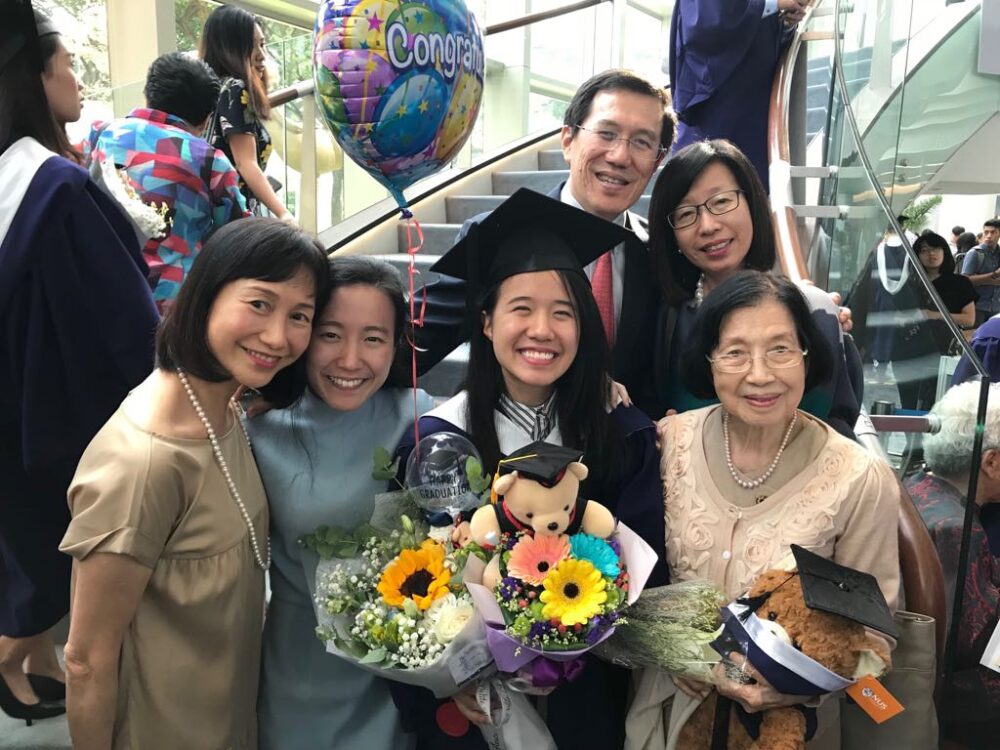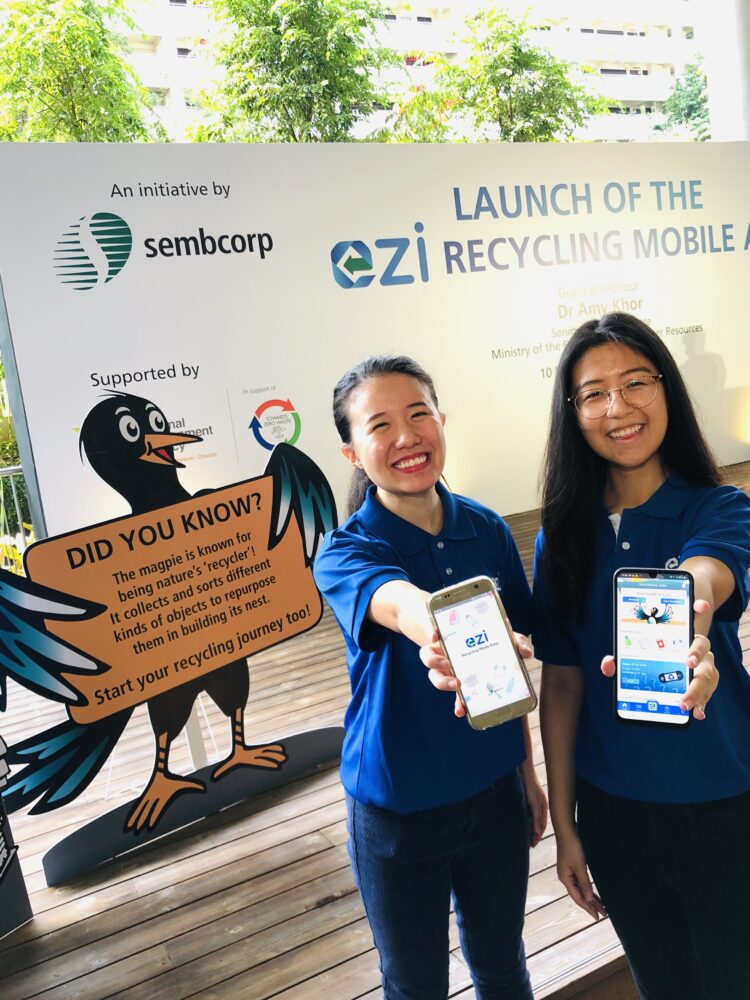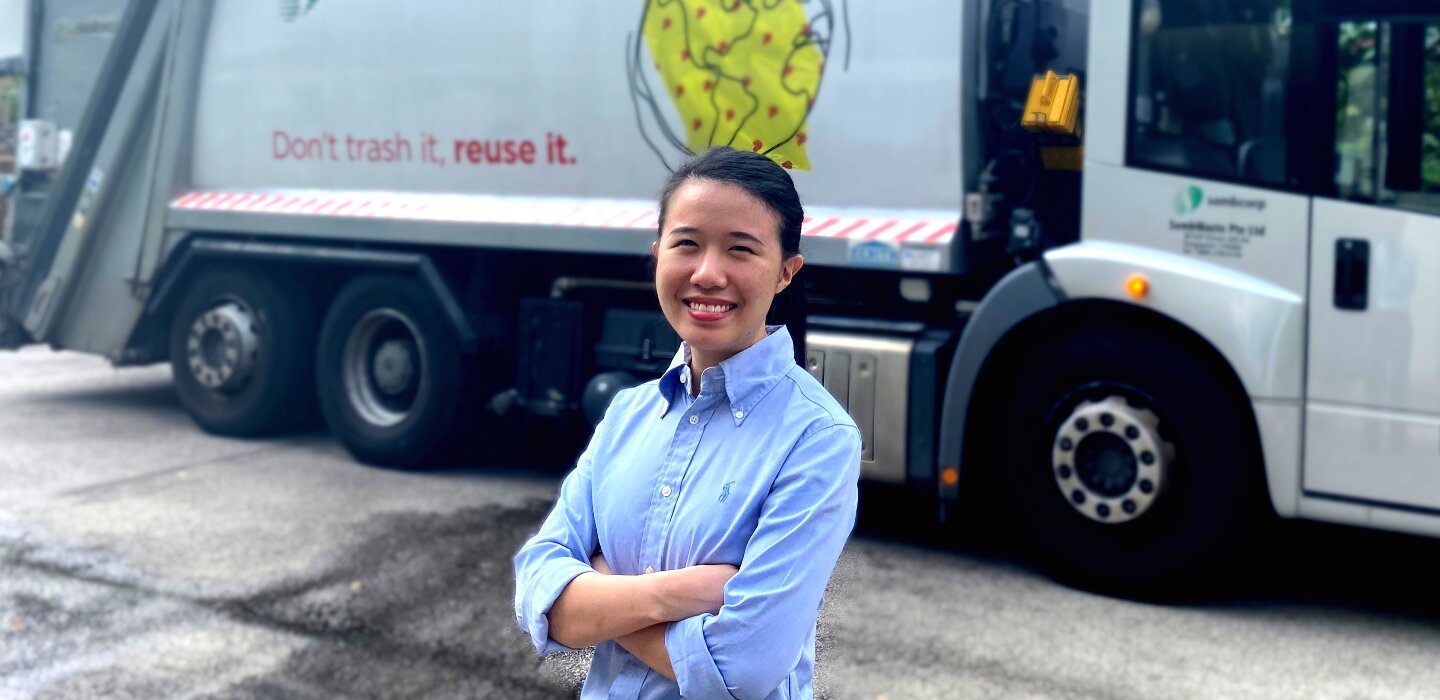Growing up, Faith Lee (BBA Class of 2018) did not know what career she wanted to pursue. It was through the culmination of several defining experiences during her time at NUS Business School that she found clarity and direction.
From wealth to waste management
Beginning her career journey on a blank canvas, Faith read widely to better understand her prospects. While in School, she took up a wealth management internship but was unenthused by the industry. Coupled with additional experiences from her overseas exchange programme with Tsinghua University in China, she wanted to pursue a career path that would create value for the larger community by driving progress towards greener and more equitable societies. She also knew she would need to differentiate herself by channelling her strengths toward an industry that needed a fresh dose of passion.
Armed with purpose and clarity, Faith proactively engaged with recruiters at events facilitated by BIZCareers, the Business School’s in-house career advisory team. In one of her modules, a final group project on the cleaning and waste management sector stirred her curiosity towards the field. Her interest drove her to attend a Waste Management & Recycling Association of Singapore (WMRAS) event armed with copies of her CV to explore opportunities. Through the connections made at the event, Faith secured an internship with SembWaste, and the rest is history. Faith is now a senior executive with the organisation, and was recently featured in a TODAYOnline article showcasing young adults pursuing career pathways in stereotypically less desirable sectors.

Faith Lee (BBA 2018), a Senior Executive at SembWaste
Finding her call in the classroom
One defining experience for Faith was taking the Business-driven Technology module where she learnt about the digitisation and automation of the National Library Board’s book inventory management system. Prior to that class, she could never imagine that such a radical transformation was possible, and how she and her generation had been taking the system they grew up with for granted. She was then inspired to do the same for cleaning and waste management industry. Her specialisation in Operations and Supply Chain Management shaped her approach towards her everyday work. On a macro level, she is able to see the waste management business as a value chain and how her work contributes to the broader industry. On a micro level, she applies analysis and process development skills learnt in school to keep her day-to-day tasks engaging.
Faith also credits NUS Business School for encouraging students to hone their interpersonal skills and boldly engage with companies and recruiters. At the same time, the school provided her a safe space for confidence-building. Within the nurturing confines of classrooms, Faith learnt to articulate her ideas to an audience.

Faith and family on graduation day
Sustainable success
Faith is making her presence and impact felt in SembWaste. In just two to three years, she has worked with senior management on the development of a mobile app, ezi, which was launched as a pilot programme to increase recycling rates in Singapore. The app has since been developed into a recycling platform connecting the “demand” for recycling with the logistics “supply” in the market. The development process involved convincing key stakeholders, better known as the household “karung gunis”, to adopt the app and its digital payment function. This project has gone a long way in uplifting a sunset industry and has given Faith great satisfaction in her work.

Faith (left) at the launch of SembWaste’s ezi mobile app
Acknowledging sustainability as a global environmental need, Faith finds meaning in her work, and also sees the potential within this space for youths to contribute and grow. “It is our responsibility as young people to use our energy and voice for positive change. My choice may not be conventional but it is certainly worthwhile.” she says.
It is our responsibility as young people to use our energy and voice for positive change. My choice may not be conventional but it is certainly worthwhile.






